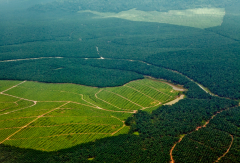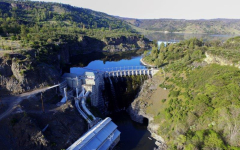It seems that everyone has a different view on how the European Union Deforestation Regulation (EUDR) evaluates risk.
Under the new law, countries are split into three categories: high, standard or low risk. The higher the risk, the more thorough the due diligence required from food businesses sourcing from that country.
How countries are benchmarked could markedly influence commodity sourcing decisions. For example, if a European food company has to choose between buying soy from a standard-risk or low-risk country, it could well pick the low-risk one because it involves less paperwork and fewer checks.
That’s why country representatives are calling for benchmarking reform.
Some want more attention paid to the high-risk category, while others want a fourth classification introduced that’s even less risky than low-risk: ‘negligible risk’.
What does ‘negligible risk’ mean for EUDR?
Most countries, including all EU member states, are classed as low risk under the deforestation law.
Low risk is the best classification a country can hope for. It tells food companies that they can source key ingredients from that country with minimal paperwork and fewer administrative requirements.
Which commodities are impacted by EUDR?
The EUDR covers seven commodities most tightly linked to deforestation: cattle, cocoa, coffee, oil palm, rubber, soy and wood.
Products derived from these commodities also fall under the scope the EUDR.
But for some member states, ‘low risk’ is not, well, ‘low’ enough. Earlier this month, MEPs tabled motions for the Commission to add a new category into the EUDR classification system. Today, those motions were adopted by the European Parliament’s Committee on Environment, Public Health and Food Safety (ENVI).
A ‘negligible’ or ‘no risk’ category would mean relevant commodities could enter the EU with little or no scrutiny. The category would “reflect the reality” that in some countries, the risk of deforestation is “effectively negligible” due to three factors, explains Austrian MEP Alexander Bernhuber: robust legal frameworks, low land-use change dynamics, and sustainable land management practices.
Another MEP, Mathilde Androuët from France, also called for a list of ‘negligible’ countries to be exempt from geolocation requirements and relevant checks.
‘Negligible risk’ category adopted, but pushback remains
Although the ENVI Committee adopted the motion for a ‘negligible risk’ category, it doesn’t mean a fourth category will be added to





